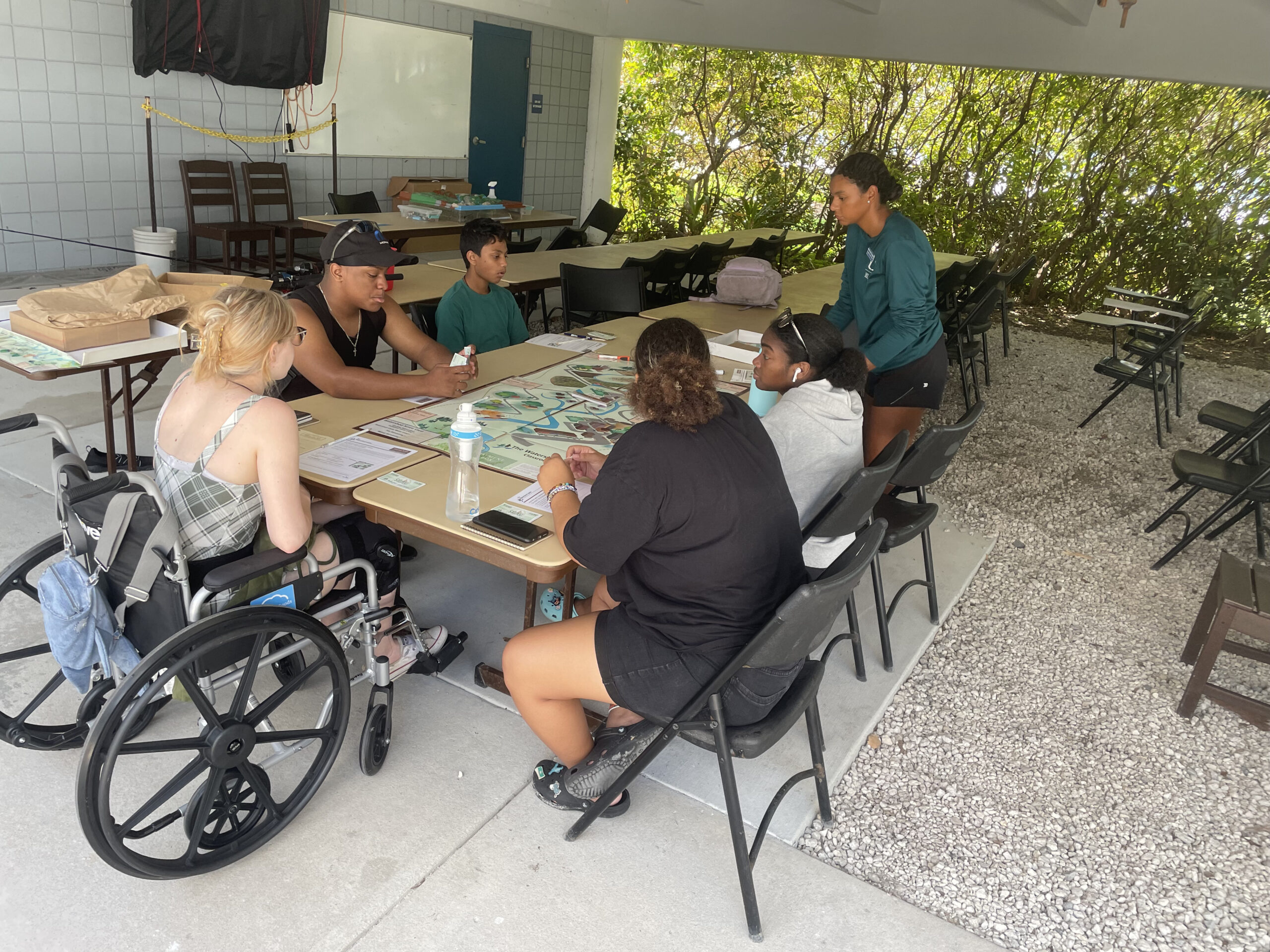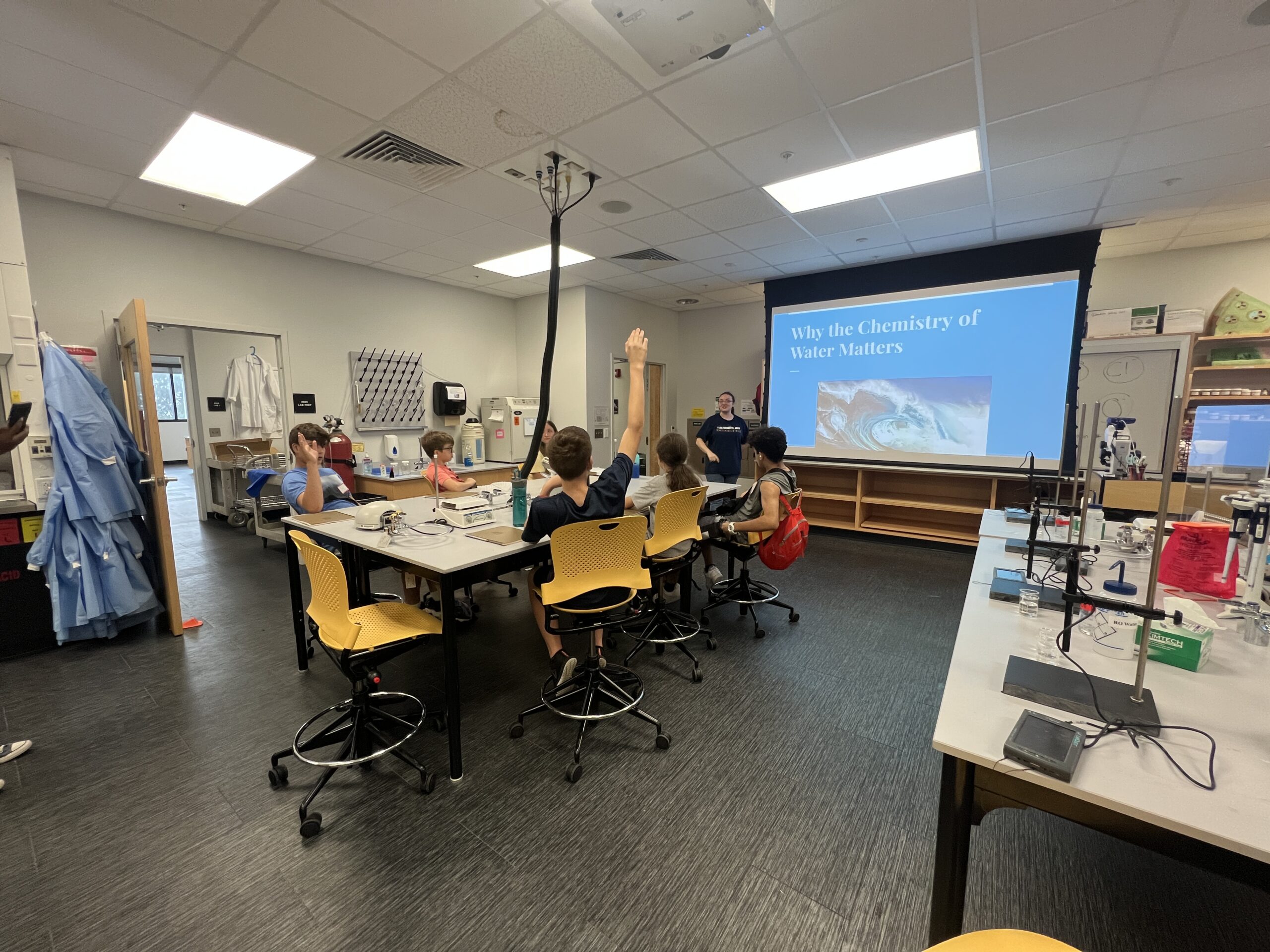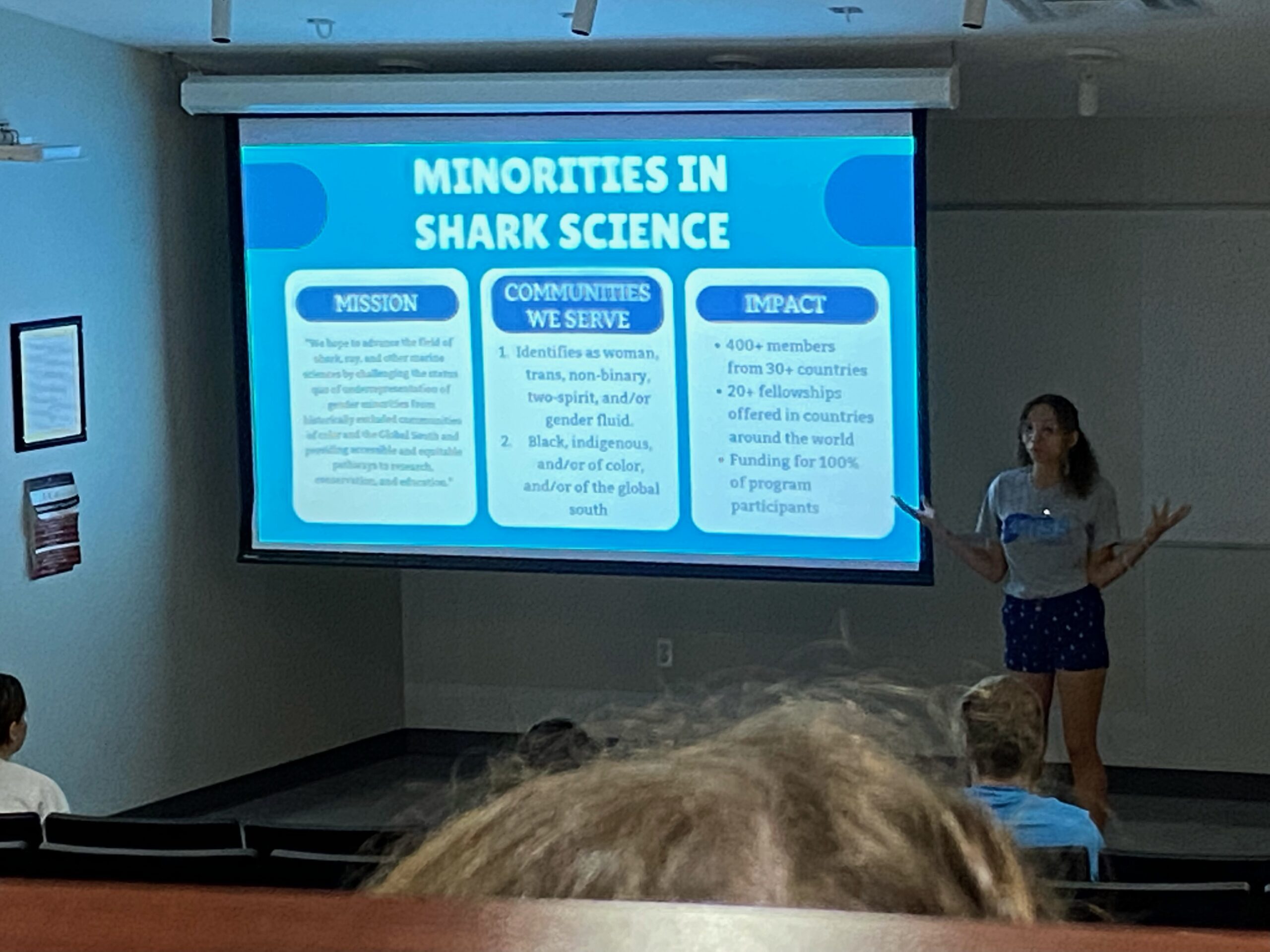Shark science made accessible through Gill Guardians

Students attending a Gill Guardians' outreach program. Photo @ Jasmin Graham | Gill Guardians
Our Gill Guardians program has expanded its in person outreach efforts to work with local Title I schools. Title 1 schools are defined as schools in which at least 40 percent of kids enrolled in the school come from low-income families. We are excited to start partnering with these schools to provide free field trips and classroom visits to bring shark and marine conservation into the classroom. Standardised test scores at these schools, including in science, tend to be lower than average. We are working with teachers at these schools to improve science literacy by providing extracurricular experiences that build on state standards and allow kids to participate in science in a way that’s hands-on and engaging. Many of these schools don’t have the resources for field trips and interactive labs and we are excited to provide support for teachers in this area. By bringing our Gill Guardians curriculum into the classroom, we are not only exposing kids to nature, but also enhancing their ability to see themselves as scientists and more importantly see science as something that is to be enjoyed and not feared. Seeing scientific concepts demonstrated in the natural world can help make it more real. This year is our pilot year. We are working with two local schools, one middle school and one high school. We are working with the middle school students to launch a long-term water quality monitoring program in our local estuary as part of the EarthEcho Water Challenge. In addition to regularly monitoring water quality, they are also monitoring local fish populations using rod and reel as well as seine nets. In the spring we plan to also take these students aboard the R/V Western Flyer to introduce them to careers in ocean science and allow them to tour a scientific vessel and see how deep-sea scientists conduct research at sea.

Students learning about water quality as a part of Gill Guardians curriculum in the classroom. Photo © Jasmin Graham | Gill Guardians
We are collaborating with several other environmental stewardship organisations in our community to run a program called Environmental Ambassadors at a local high school. These students engage in water quality monitoring, investigate policies that affect the management of our local watershed, and have a chance to explore topics and causes they are interested in surrounding coastal ecosystem help. We are excited to work with this group of students throughout the year and are excited to encourage not only environmental stewardship, but also leadership and conservation activism among this eager group of students. At the end of the school year, we will also be taking them out on a shark tagging trip and will spend the day learning about the sharks and rays of Tampa Bay, threats they face, and their importance in our ecosystem.

Students learning about inclusivity in shark science as a part of Gill Guardians curriculum in the classroom. Photo © Jasmin Graham | Gill Guardians
